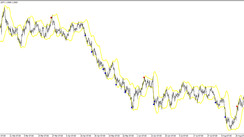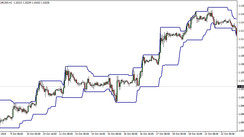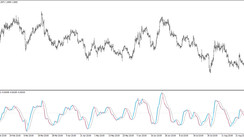Introduction to spread betting on market indices
Spread betting, it’s the quintessential way to partake in online trading and the most accessible way in which to become involved in the exciting world of financial instruments. Spread betting lends itself to a much wider audience as it allows a trader to profit from a stock or an asset without actually purchasing the stock, which means that it lowers the entry level barrier. In the past a trader would have been made to fork out big bucks to buy stock and stock always comes in set denominations. With spread betting, you’re allowed to bet on whether the stock of a prominent company will rise or fall. And your options aren’t exclusive to betting on the performance of stock either as spread betting will accommodate forex trading, commodities, shares and of course, indices. In addition to the vast range of options available, the ferris wheel is on the move 24 hours a day, 5 days a week, and because when one market closes another starts, the time or times at which you elect to trade can significantly influence the eventual outcomes of your trades.
What are indices?
Indices could be described an overall representation of a group of shares. In fact, when you trade in indices, you’re essentially looking at an entire economy or sector at once. You don’t need to go into the intricacies as you’re interested in the all-encompassing end product and its movements. A prime example of an index would the FTSE 100, which lists the 100 largest companies on the London Stock Exchange. By way of spread betting, you can bet on whether the price of the index market will rise or fall. This highly liquidity market offers more trading hours than the majority of the other markets and thus you can gain prolonged exposure to potential possibilities. Because index markets like the FTSE 100 and Dow Jones Industrial Average are made up of the top performing company stocks, it’s imperative that they are regularly reviewed, and they are. If a company underperforms, it gets removed and replaced by one that meets the strict criteria.
Prominent index markets
- FTSE 350: made up of of the 350 largest companies quoted on the London Stock Exchange
- FTSE 250: made up of companies listed in the FTSE 350 but not the FTSE 100 – formidable companies, but not big enough to make the FTSE 100
- DAX 30: made up of stocks of the 30 largest German companies
- Nikkei 225: made up of 225 companies listed on the Tokyo Stock Exchange
- Standard & Poors 500: made up of stocks of the 500 largest US companies
Less scrupulous analysis
If you’re going to partake in spread betting and indices trading, then here’s something to remember; the FTSE and Dow aren’t instruments in themselves. There’s a general tendency to seek out macroeconomic reasons such as sovereign debt issues when the index rises or falls. When in fact closer attention should be paid to what applicable news and media outlets are saying about certain companies and sectors. A helpful tool would be a heat map as it shows which sectors are impacting the index price the most. In the case of indices the need for the scrupulous analysis of balance sheets and cash flows is not imperative and one should instead opt for a more technical analysis. Then of course there’s always the good old trading robot or automated trading software programme. It’s not full-proof, but it sure could help. Finally, it’s important to note that indices are less volatile; so whereby individual stocks could jump up or down by 10 or even 20 percent, an index might only do 4 percent on a good day.





